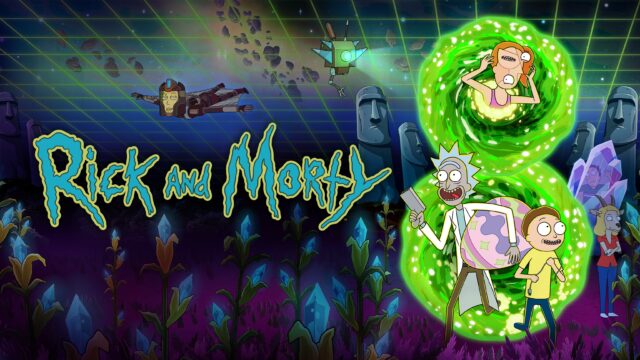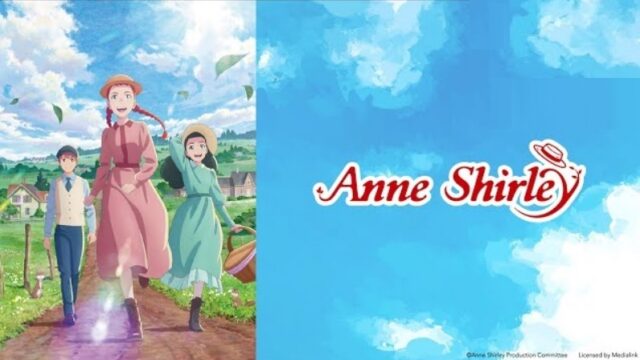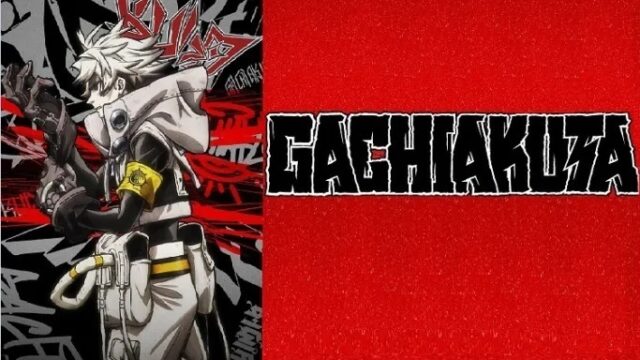English Dub Season Review: Aharen-san wa Hakarenai Season Two
I’m not entirely big on the romance genre, drama or otherwise. However, if the right one piques my interest well enough, I’d be willing to see what the hype is about. Some of them struggle to retain my curiosity, while others succeed in making me care for the characters’ “will they, won’t they“ relationship, even in awkward situations. One example of the latter is Aharen-san wa Hakarenai, translated as “Aharen Is Indecipherable,“ an offbeat yet increasingly charming take on the typical high school rom-com formula involving two expressionless classmates helping each other come out of their shells. It’s random, awkward, and, best of all, refreshingly charismatic and adorable through its light-hearted presentation and innocently endearing scenarios. These elements, though repetitive, make Aharen-san another anime series I didn’t expect to like due to my inexperience with the genre, but I was proved otherwise.
Because of this, I became highly interested in the show’s second season, which delivered more misunderstandings and quirky dilemmas amid the characters’ navigations through high school. Only this time, Aharen and Raido are exploring these situations together as a couple following the season one finale. This signifies that they’re facing not only more pressures of everyday shenanigans at school and in their homes but also the difficulties of maintaining their relationship, as Aharen continues to be more open with her friends. With these familiar qualities intact, Aharen-san delivered more of the same in its awkwardness and oddball vibes as we expected from season one, for better or worse. As someone who had a fun time with season one, it’s obviously the former.
Much like season one, season two utilized the show’s slice-of-life sitcom narratives to chronicle the misadventures of Aharen and Raido at high school. As they recently began their relationship, the two navigate through their second and third years of high school, with Raido continuing to support his girlfriend despite his habit of overthinking things. The season also continues Aharen’s coming-of-age journey, as she strives to be more open towards her classmates, including Ishikawa and Hanako Sato, and even pursues her future career. Additionally, they befriend a new transfer student, Riku Tamanaha (Kara Edwards), a shy and introverted girl who was Aharen and Mitsuki’s classmate back in elementary school.
If you enjoyed the first season of Aharen-san, maybe even loved it, it’s a guarantee that you won’t be disappointed with season two. This is another round of goofy charm and fun rom-com vibes that emphasizes its relatable messages involving opening up to others in a high school setting. While the episodic structures lack anything refreshing in the show’s formula, series director Tomoe Makino and chief director Yasutaka Yamamoto ensured that the scenarios evoke a sense of charisma and weirdness to maintain their appeal. One example is its third episode, “The Athletics Festival, Huh?,“ which has the characters competing at the school’s athletics festival. Its lack of surprises in the structure made it the weakest episode of the season, but its heartfelt approach in the classmates supporting Aharen got me smiling throughout its duration, excusing its predictability.
However, what makes season two stand out from the previous one is the character development it delivered amid the season’s sitcom-like situations. The second season of an anime is usually when the narrative picks itself up regarding its characters and stakes after introducing its concept in the first season. On some occasions, it resulted in a sophomore season being just as good, if not better than season one. The second season of Aharen-san is no exception, as Raido and Aharen have enough growth in their arcs to make specific episodes feel significant to their journeys rather than being pointless yet amusing fillers. This was demonstrated in the season’s final five episodes, starting with “Christmas, Huh?,“where Aharen’s plans for the future, including college, gradually reveal themselves as she and Raido enter their senior year of high school. This prompted Raido to support Aharen’s dream of becoming an art teacher, even if their plans might separate them for a bit after graduation. It further emphasizes Raido’s generosity in putting people’s needs ahead of his own despite his expressionless appearance, making him a worthy part of Aharen’s life.
The supporting characters also got their chance to shine in their own dilemmas, mainly the season’s new character, Riku, who struggles to overcome her shyness to make friends at her new school by participating in their activities. Riku’s timidness provided a similar vibe to Mitsuki when the latter first met Raido in season one. However, the character injected enough humorous and relatable traits to make her stand out among the other new characters, with Kara Edwards effectively conveying Riku’s shy personality through her vocal performance without making her too annoying. Ishikawa and Sato also had their subtle moments of growth as they struggled with being distant from each other. Their revelation in its tenth episode, “A Musical, Huh?,“ may not be as profound as anticipated, but the genuine nature of the complex “will they, won’t they“ scenario was respectable in keeping the series more focused on the main couple.
The second season of Aharen-san wa Hakarenai would’ve been another case of a sophomore season providing more of the same in its concept with diminishing results. What was once refreshing to the rom-com genre in the first season would become pretty repetitive in its narrative structures in the second season. However, despite season two losing a small bit of steam, it retains the show’s offbeat humor and warmth to provide a rewarding and heartwarming continuation of Raido and Aharen’s unusually awkward yet endearing relationship. This is mainly due to the development of the show’s characters, which makes them more human than their quirky personas, especially in the final episodes involving them graduating from high school. Accompanied by its vibrantly bright and surreal animation by Felix Film and sitcom-like humor, the show’s sophomore season further highlighted my appreciation of its seemingly typical concept despite my inexperience with rom-coms.
























"There are also other characters that come and go (also owned by the Warner Bros. Discovery conglomerate media company)."
Huh. Is that just referring to other characters from the show itself, or is this implying that the new season is going to have cameos from other WBD IPs